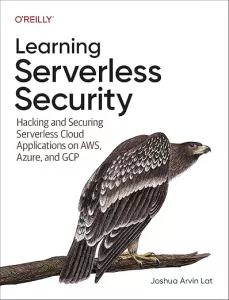- Cloud Storage is a service for storing your objects in Google Cloud. An object is an immutable piece of data consisting of a file of any format. You store objects in containers called buckets.
- You specify a location for storing your object data when you create a bucket. You can either select region, dual-region, and multi-region as location. Objects stored in a multi-region or dual-region are geo-redundant.
- Cloud Storage offers different storage classes for various storage requirements: Standard, Nearline, Coldline, and Archive.
- GCS offers unlimited storage with no minimum object size.
- Cloud Storage offers two systems for granting users permission to access your buckets and objects: IAM and Access Control Lists (ACLs). These systems act in parallel – in order for a user to access a Cloud Storage resource, only one of the systems needs to grant the user permission.
- Cloud Storage always encrypts your data by default on the server-side before it is written to disk, at no additional charge. You also have an option to do your own encryption before uploading it to Cloud Storage.
|
- Block storage service, fully integrated with Google Cloud products like Compute Engine and GKE.
- It can be attached to virtual machine (VM) instances running in Compute Engine or Google Kubernetes Engine
- Transparently resize, quickly back up, and support simultaneous readers
- Persistent disks ensure data integrity by storing data redundantly in zones or regions and are designed for high durability.
- They are located independently from your virtual machine instances. This means you can detach or move your disks to retain your data even after deleting your instances.
- You can create snapshots to back up data from your zonal or regional persistent disks.
- Snapshots are geo-replicated and available for restore in all regions by default. Snapshots of a block device can take place in minutes rather than hours.
- You can resize your existing persistent disks to scale based on performance and storage space requirements.
- Persistent Disks are automatically encrypted to protect your data, in transit or at rest. You can supply your own key, or we will automatically generate one for you.
|
- Ephemeral locally attached block storage for virtual machines and containers.
- Local SSDs have higher throughput and lower latency than standard persistent disks or SSD persistent disks.
- The data that you store on a local SSD persists only until the instance is stopped or deleted.
- Local SSDs are designed to offer very high IOPS and low latency.
- Compute Engine automatically encrypts your data when it is written to local SSD storage space. You can’t use customer-supplied encryption keys with local SSDs.
- You can create an instance with 16 or 24 local SSD partitions for 6 TB or 9 TB of local SSD space, respectively.
- Instances with shared-core machine types can’t attach any local SSD partitions.
|
- Fully managed service for file migration and storage. Easily mount file shares on Compute Engine VMs.
- Filestore instances are fully managed NFS file servers on Google Cloud for use with applications running on Compute Engine virtual machines (VMs) instances or Google Kubernetes Engine clusters.
- Filestore share can be accessed both from a Compute Engine instance within the same VPC or from remote clients.
- File shares can also be accessed from Google Kubernetes Cluster. The cluster must be in the same Google Cloud project and VPC network as the Filestore instance unless the Filestore instance is on a shared VPC network. Currently, Filestore instances can only be created on a shared VPC network from the host project.
|

















